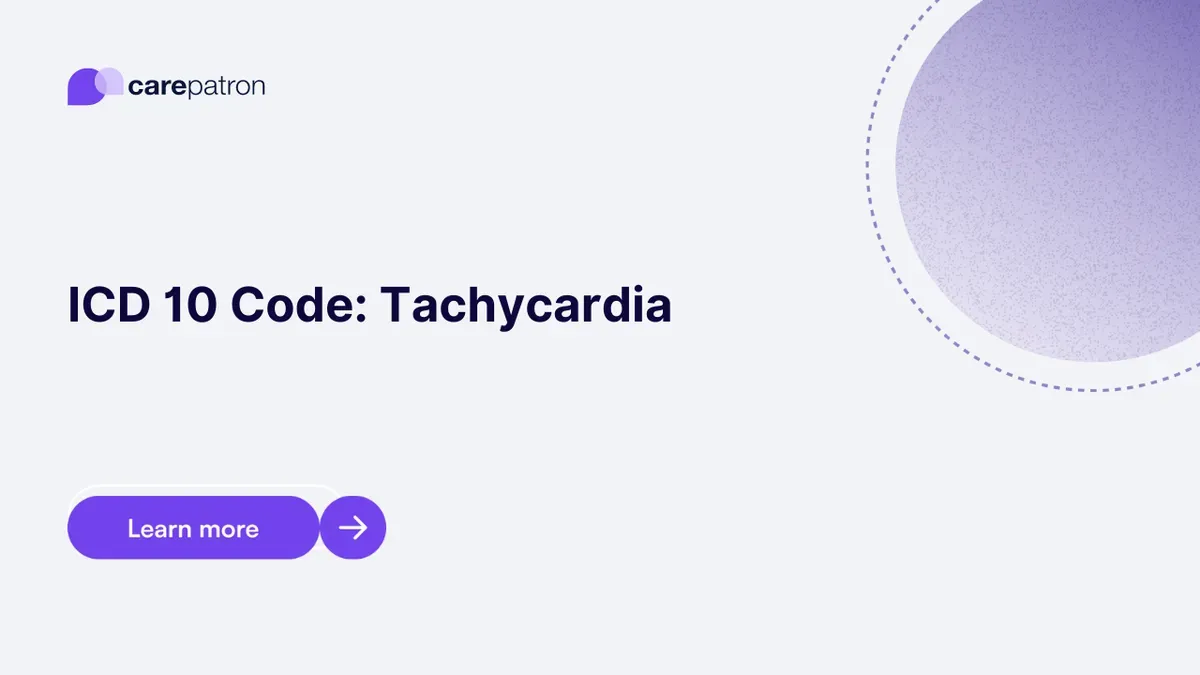
Tachycardia ICD-10-CM Codes
Delve into the 2023 guide on Tachycardia ICD-10-CM codes. Understand the specific codes, their clinical descriptions, and their billing implications.
Use Code
Commonly asked questions
Tachycardia can be classified into several types, including atrial, ventricular, and supraventricular, depending on where the rapid heartbeat originates in the heart.
Tachycardia is diagnosed using an electrocardiogram (ECG) that records the heart's electrical activity. Other tests like Holter monitors, event recorders, and electrophysiological studies might also be used.
Yes, if left untreated, tachycardia can lead to complications like heart failure, stroke, or sudden cardiac arrest. It's essential to seek medical attention if one suspects they have tachycardia.
EHR and practice management software
Get started for free
*No credit card required
Free
$0/usd
Unlimited clients
Telehealth
1GB of storage
Client portal text
Automated billing and online payments
